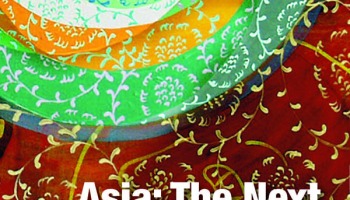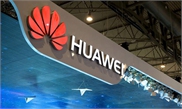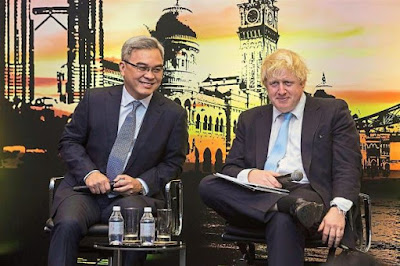 |
|
A Huawei Technologies Co logo sits on display inside an electronic goods store in Berlin on December 17. Photo: VCG |
Former Huawei employee in US laments government's 'endless assaults on the company'
○ Huawei's so-called 'wolf culture' helped it become successful in foreign countries
○ The top global telecom equipment provider has been going through a tough year in 2018
○ Chinese and foreign employees hold different views on Huawei's rapid expansion and aggressive corporate strategy
When Jason Li was assigned to the Mobile World Congress at the beginning of 2011, shortly after he joined China's Huawei Technologies, he impressed Ren Zhengfei, the former military officer who founded the company in 1987, with a presentation about the company's products in English.
"He [Ren] came to the company's stand the day before the congress kicked off and asked me where I studied before joining the company. I said New Zealand," Li said, noting that Ren immediately suggested that this newly recruited employee should fly to the UK office and help build a local talent center as part of Huawei's global expansion.
The Shenzhen-based company has experienced a rapid expansion over the past 30 years, and has footprints in more than 170 countries and regions. However, it has been under the spotlight recently as Meng Wanzhou - its chief financial officer - was arrested by the Canadian authorities in Vancouver on December 1 at the request of the US on suspicion of violating US trade sanctions.
Under pressure from the US, more governments in the West have been considering blocking Huawei's core products over security concerns, which is considered as a major setback in its development into a multinational giant.
Former employees of Huawei like Li spent years working overseas, and describe Huawei's corporate culture as a "wolf culture" that helped it become successful.
However, this "wolf culture" also sparked controversy, and might have harmed its current operations.
Arduous journey
When Li started working at Huawei's London office, he started everything from zero. From 2012 to 2014, he had traveled to over 20 countries and spent most of his days in countless hotels and airports, sacrificing much of his spare time to reach out to more foreign telecom carriers and companies.
"As soon as I left Egypt after a business trip to Cairo years ago, the country plunged into civil conflict, and some of my former coworkers were stuck in the hotel. And one time in Nigeria, we were exposed to yellow fever," he told the Global Times, referring to those days at Huawei as an unforgettable memory.
Long working hours on challenging projects with constant business trips to remote areas are common descriptions of the workplace culture at the world's largest telecoms equipment maker.
"Employees at Chinese telecom companies such as Huawei and ZTE endured hardships in an earlier stage of global expansion," Xiang Ligang, a veteran industry analyst close to Huawei, told the Global Times in a recent interview.
Ren, the founder of Huawei, is considered one of the most successful Chinese executives during the country's reform and opening-up. He was influenced by the military theories of Mao Zedong, according to a book on Huawei's development published in April.
Like Mao's military theories, which advocated taking small and medium cities and extensive rural areas first as part of a revolution, Ren started from remote and less developed areas to avoid fierce competition with foreign rivals.
"In some countries in Africa and South America, telecom operators could not afford expensive products. They also lacked staff members for maintenance and operations. This gave more room for companies like Huawei and ZTE, which continuously assigned staff to those areas, to grow," Xiang said.
Huawei beat Ericsson and Nokia in the global mobile infrastructure market in 2017, as the Chinese company took 28 percent of the market share and became the largest mobile infrastructure provider worldwide, according to the latest industry report from IHS.
"In the early days, Huawei assigned most of its senior executives to the overseas market to explore business opportunities," Xiang said, noting that accepting these assignments later became an unwritten rule.
Lingering conflicts
Huawei's corporate culture has a long-lasting influence on its staff. An former employee who worked as a programmer at Huawei's then headquarters in Nanshan district, Shenzhen in the early 2000s said that he worked for Huawei for about one year and a half shortly after he graduated from college but the short experience there has instilled a lasting impact on his future career. He learned to be hardworking, persistent and low-key.
Even after he left Huawei, he sometimes, as if he had been brainwashed, still would read aloud the internal letters written by Ren Zhengfei circulated online to his then-girlfriend-now-wife, partly as a way to woo and impress her, and partly as a way to draw inspiration and strength for himself.
The employee in his early 40s who only spoke on condition of anonymity said he worked long hours from about 10 am to 10 pm every working day at Huawei. When he was tired, he would sleep on the mattress under his desk. "All co-workers did the same, especially the managers," he said. "When a new project kicked in, we would work overnight."
This so-called wolf spirit - a high-pressure workplace - is also known as a "mattress culture," as many of its engineers work so hard that they use blankets and mattresses to sleep at the office. And this military-style management was sometimes rejected by its foreign staff overseas, which led to deeper culture clashes.
"As far as I know about this so-called military style management, it's implementing the corporate policy in the most efficient way," Li said.
For example, when he worked at the company's London office, all the staff there were required to punch in and out every day, following strict discipline.
"Sometimes, foreign employees preferred more flexible working hours, especially when it was bad weather. But the headquarters rejected this request," he said, noting that localizing its business in foreign markets was a bumpy road over some similar daily issues.
For some foreign employees, being part of a growing Chinese company is still remarkable experience.
"I have great respect for what the company has achieved… Huawei's growth and expansion have been amazingly impressive. It was exciting to be a part of that," William Plummer, the company's former US vice president of external affairs, told the Global Times.
Plummer, who is considered an eight-year veteran bridging the Chinese company with the US government, was reportedly laid off by Huawei in April amid rising tension between China and the US.
He noted that the experience with Huawei was sometimes frustrating both "due to the US government's endless assaults on the company, and the company's inability to trust and listen to non-Chinese experts in dealing with such matters."
The company has been going through a tough year in 2018. In January, major US carrier AT&T suspended potential cooperation with Huawei in its mobile business over security concerns.
And the "Five Eyes" nations (Australia, Canada, New Zealand, UK, US) decided to take aim at all Chinese telecoms equipment companies. Australia slashed its use of Chinese-made products in August, followed by New Zealand and the UK.
In particular, the US government targeted Huawei for years, as American counterintelligence agents and prosecutors began exploring possible cases against its leadership back in 2010, according to the New York Times.
Focus on own work
After Meng's arrest, several of Huawei's Chinese employees shared posts on their social media accounts to support each other, claiming that the company can definitely get through this difficult time.
"It will survive widespread bans in Western countries … and we should focus on our own work," a current employee at the company told the Global Times.
Some observers suggested that Huawei's foreign and Chinese staff, who often hold different attitudes in the workplace, may see its struggles in a different light.
Many Chinese staff work very hard overseas because of Huawei's incentive stock options. "Three years after I joined Huawei, I earned about 300,000 yuan ($43,500) a year, and my bonus was almost the same as my basic salary," said a former Chinese employee "Eric," who worked at Huawei from 2009 to 2013 and spent a year in Mumbai, India.
Working long hours is driven by growing business. Many employees understand that the better financial performance Huawei has, the more profits its employees could share in accordance to employee stock ownership plans.
However, to become a true global tech firm, Huawei will need to diversify its leadership, Plummer suggested.
As the case of Meng has entered the judicial system, some believe that Huawei's situation will get worse, even though there is no proof for the US allegations.
Looking into this dilemma, the company's aggressive and customer-centered business strategies might have helped its take over as much market share as possible.
"But in the long run, as a private company that insists on not going public, its opaque financial status also raises questions over its sustainability," Eric said.
By Chen Qingqing Source:Global Times
 |
Newspaper headline: A true multinational |
Related:
The past year was a tough year for China-US relations.
From Washington DC to Iowa to Seattle, this Global Times reporter
recently talked to over 50 government officials, scholars, reporters,
businessmen and farmers in the US and asked them what they think of the
trade war and China-US relations
China should be confident in this: As long as China
maintains steady peripheral diplomacy, the US can do nothing to China
and Beijing will gain the initiative in diplomacy toward Washington.
Related posts:
https://youtu.be/rqRItBZOp5g Ren Zhengfei
leads Huawei Technologies, one of the world's largest manufacturer of
telecommunication h...
https://youtu.be/0fDUgBJ8yfY
https://youtu.be/0jnDXocDmRo http://sh-meet.bigpixel.cn/?
from=groupmessage& isappinstalled=0 .
4 https://youtu.be/03D-0uDOj_c
https://youtu.be/N8IyDSrMY3w The arrest of a top Huawei executive may
spark a conflict that could cr...
https://youtu.be/pSHOSumep9E
https://youtu.be/4fJKlEyEOEg https://youtu.be/N5Ta_RhsXYY American
economist Jeffrey D. Sachs says ...
Photo: VCG China’s business people,
researchers, scholars say they ‘feel the chill’ in US Growing China-US
tensions have affected te...
https://youtu.be/3z58zHmz-6k
https://youtu.be/17KDxqffVFI Professor Dr. Wang Former Executive of
Halliburton DID HUAWEI VIOLATE .
In custody: A profile of Meng is displayed
on a computer at a Huawei store in Beijing. The Chinese government,
speaking through its emb..













































